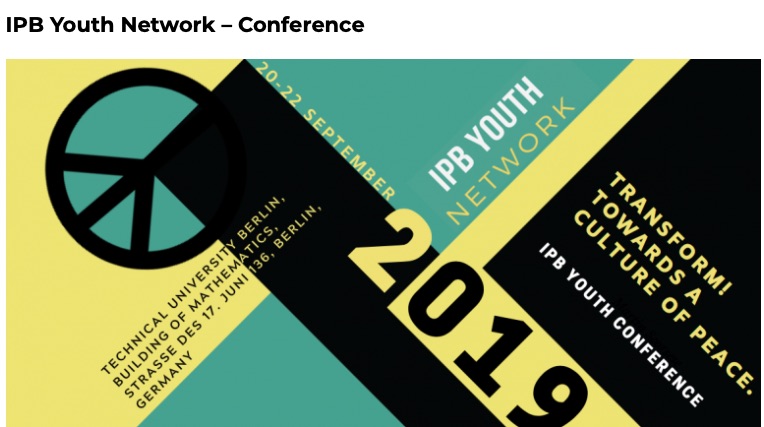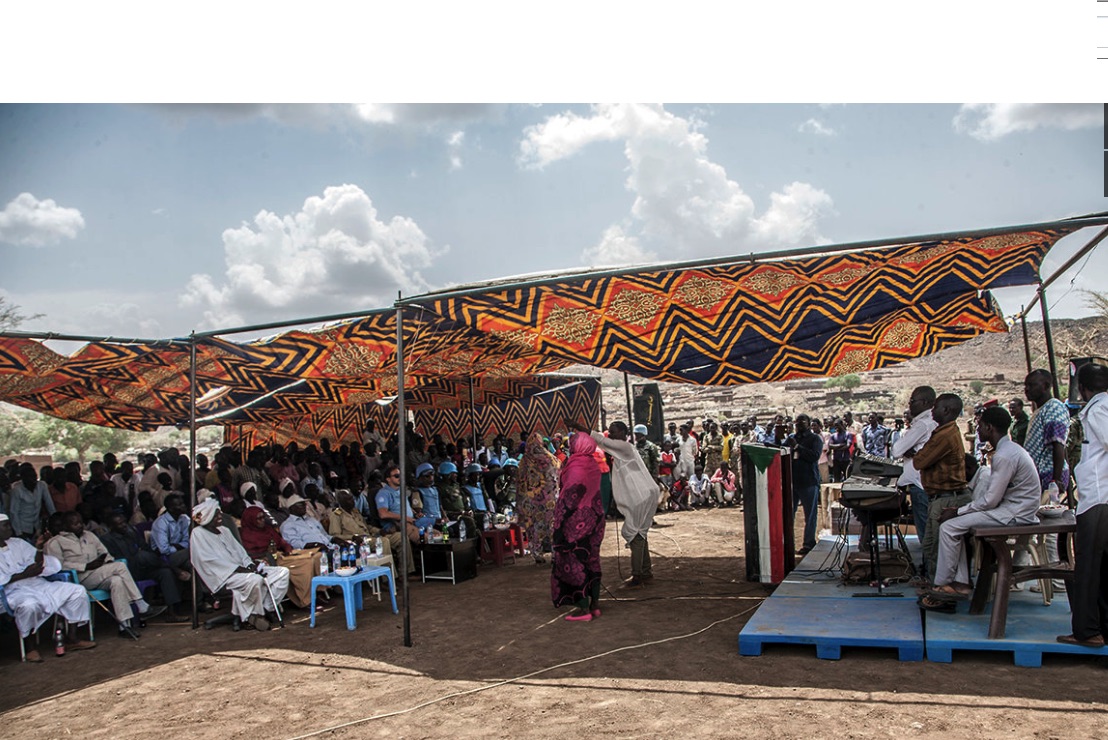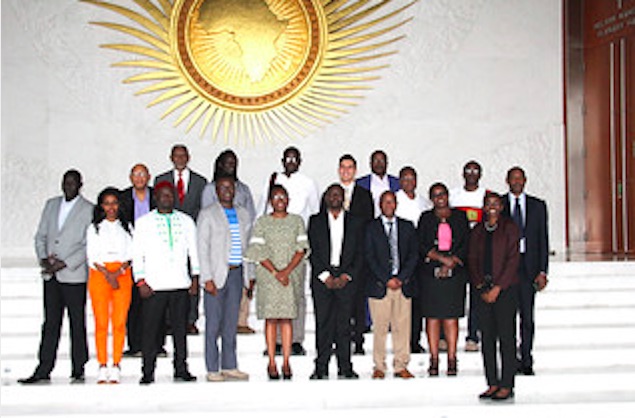FREE FLOW OF INFORMATION
An article from the United Nations Press Service
The Security Council’s youth, peace and security agenda is beginning to make a difference for young people in conflict zones and other vulnerable situations, but much work remains to effectively incorporate their voices, energy and ideas into efforts to build and sustain peace, youth advocates told the 15-member organ today.

Wevyn Muganda, Programme Director for HAKI Africa, a national human rights organization in Kenya, said that, if fully implemented, the youth, peace and security agenda can transform the lives of young people and societies. She went on to describe her Sundays spent with young people in informal “chill spots”, known in Mombasa as maskani, where she connects with influencers and activists. She added that her blog, “Beyond the Lines”, has helped to build an online community of peacebuilders and activists. “[United Nations] Security Council resolution 2250 (2015) has secured me and my young peers a seat in the car,” she said, emphasizing that young people must be at the wheel to reach the desired destination. She noted, however, that police have been accused of entering these spaces to harass and illegally arrest young people.
Sofia Ramyar, Executive Director of Afghans for Progressive Thinking, said that the bombing of her family’s home in 1995 and life as a refugee in Pakistan led her to work for peaceful coexistence in Afghanistan, with human rights for all. “I want to assure you that the youth, peace and security agenda is preparing a generation of young women and men in Afghanistan that will lead our country towards peace, development and prosperity,” she said, while acknowledging that hierarchical relationships between men and women, as well as between elders and youth, remain dominant. “This needs to change,” she stressed.
Jayathma Wickramanayake, the Secretary-General’s Special Envoy on Youth, said “our effort to build and sustain peace needs to be democratized to include the communities most affected”, pointing out that young people provide the best chance for achieving that. In an increasingly globalized world, Member States must keep going back to Security Council resolutions 2250 (2015) and 2419 (2018) to ensure that youth perspectives are not distorted by stereotypes that associate young people with violence, she emphasized. With 408 million of the world’s 1.8 billion young people living in contexts affected by armed conflict, “we need to engage young people not only as beneficiaries, but as equal partners in all our efforts, especially our efforts to prevent conflict and build peace”, she added.
(Article continued in right column)
Question related to this article.
(Article continued from left column)
In the ensuing debate, Council members agreed on the importance of giving young people a bigger say in peace and security matters, with many underscoring the need to address root causes of conflict, combat terrorism and violent extremism, provide better education and dignified employment, promote the rights of women and girls, and address the challenges of climate change.
Equatorial Guinea’s representative, speaking also on behalf of Côte d’Ivoire and South Africa, urged support for national Governments and regional organizations in implementing the youth, peace and security agenda at the national level. With many young people living in fragile countries, especially in Africa, the African Union attaches great importance to youth inclusion, he said. Several African countries are working with the United Nations Population Fund (UNFPA) to support initiatives for reducing the radicalization of young people, he noted.
Kuwait’s representative said many young people in the Middle East face challenges to the attainment of their aspirations, with poverty depriving them of the right to dignity and terrorism hijacking their innocence. He went on to highlight progress in implementing the youth, peace and security agenda in such places as Colombia, Iraq and Kosovo.
Indonesia’s representative declared: “It is time that we transform our youth from a demographic dividend into a peace dividend,” emphasizing that the youth, peace and security agenda is not meant for Council members alone, but for all Member States. He went on to cite his country’s experience in empowering young people to combat radicalization, including its adoption of legislation integrating youth empowerment into the national development plan.
The representative of the United States said the Council should hear directly from young people more often. While diplomats spend a lot of time talking behind closed doors, the reality is that young people are driving and setting the political agenda, she noted. “They are the change that is happening,” working to end tyranny and speaking up for human rights and accountability, she added.
Agreeing that the United Nations must pay greater attention to youth, the Russian Federation’s representative emphasized, however, that the General Assembly, Economic and Social Council and their subsidiary bodies are better placed to address the subject. Bringing it before the Council does not help the work of the Special Envoy on Youth, he said, warning also that some external players use radicalized youth to overthrow legitimate Governments.
Also speaking today were representatives of the United Kingdom, Germany, China, Dominican Republic, France, Poland, Belgium and Peru.
(click here for the full text of their statements.)
(Thank you to Phyllis Kotite, the CPNN reporter for this article.)





 Video from Deutsche Welle
Video from Deutsche Welle 

